Essential Qualities of an Insurance Litigation Attorney
Insurance litigation is a specialized field that demands an in‐depth understanding of insurance policies, regulations, and exceptional analytical, communicative, and ethical skills. Attorneys in this niche handle complex cases including liability insurance, commercial general liability disputes, negligence claims, property damage, and more. This article examines the essential qualities that distinguish top insurance litigation attorneys, including their expertise in insurance law, communication and negotiation skills, analytical problem-solving abilities, client-centric approaches, and unwavering ethical standards.
Understand the Importance of Expertise in Insurance Law
Expertise in insurance law is fundamental for representing clients effectively. Attorneys must interpret and apply the nuances of liability insurance, commercial general liability policies, and related contractual instruments while staying current with industry-specific legal precedents and regulatory frameworks.
Investigate Educational Qualifications of Top Attorneys
Top insurance litigation attorneys typically boast strong academic backgrounds from reputable law schools. Their education often includes specialized coursework in insurance, corporate, and dispute resolution law. Many pursue advanced degrees, such as an LLM in insurance or risk management, and continuously update their skills through continuing legal education and seminars.
Evaluate Experience in Handling Insurance Litigation Cases
Experience is a critical factor that distinguishes outstanding attorneys. Seasoned practitioners have handled cases involving disputed policy interpretations, allegations of bad faith by insurers, and claims of misrepresentation. Their experience in negotiating settlements and litigating before judges and juries refines their ability to identify deficiencies in an opponent’s strategy and secure favorable outcomes.
Assess Knowledge of Relevant State and Federal Laws
A proficient attorney is well-versed in both state and federal laws governing insurance. This includes understanding statutory requirements, judicial decisions, and relevant regulatory policies. Staying updated on legal trends, amendments, and interpretations ensures that litigation strategies are grounded in the most current legal framework.
Recognize Strong Communication Skills in Legal Practice

Effective communication is critical in insurance litigation. Attorneys must articulate complex legal theories clearly, negotiate persuasively with opposing counsel, and ensure that both verbal and written communications are precise and evidence-backed.
Identify Effective Negotiation Techniques for Settlements
Negotiation requires assertiveness, strategic positioning, and creativity. Top attorneys analyze cases in detail, use precedents, and adopt tactic-based approaches to maximize settlement offers. They leverage documented evidence such as expert testimonies and forensic analyses while understanding timing and psychological dynamics to secure faster and more favorable resolutions.
Examine Listening Abilities in Understanding Client Needs
Listening is essential for understanding client concerns and objectives. By carefully engaging with client narratives, attorneys can uncover crucial details, build accurate case theories, and manage client expectations. This empathetic yet analytical approach helps ensure that litigation strategies align with clients’ long-term goals.
Analyze Clarity in Documenting Legal Arguments and Strategies
Clear documentation of legal arguments is the backbone of successful litigation. Attorneys draft pleadings, briefs, and motions using detailed explanations, key evidentiary support, and step-by-step outlines of the litigation process. This clarity strengthens their position in court and keeps clients well-informed and confident in the strategy employed.
Find Analytical Problem-Solving Abilities in Attorneys
Exceptionally strong analytical problem-solving skills allow New York attorneys to assess complex cases, identify potential risks, and develop innovative strategies. This enables them to navigate multifaceted evidence and craft arguments that address both the strengths and weaknesses of a case.
Explore Methods to Assess Case Strengths and Weaknesses
Attorneys use case mapping, risk assessment tools, and scenario analysis to evaluate every piece of evidence—from policy language and claim history to expert testimonies. Such detailed assessments enable them to build case theories that are resilient to counterarguments and identify when settlement is preferable to trial.
Discuss Strategies for Anticipating Opposing Counsel Moves
Anticipating the strategies of opposing counsel is a hallmark of strong analytical problem solving. Attorneys simulate potential arguments via mock trials and strategy sessions, preparing them to counter the opposition effectively. This ability to foresee and adapt minimizes risks and increases the likelihood of a favorable verdict.
Review Critical Thinking Approaches for Case Analysis
Critical thinking transforms complex case details into organized, persuasive arguments. Regular review sessions, supported by tools like SWOT analysis and legal research databases, help attorneys identify any gaps in the opposition’s case and reinforce their own arguments with logical, well-structured reasoning.
Evaluate Client-Centric Approach of an Attorney

A client-centric approach is vital in insurance litigation. Attorneys who prioritize regular communication and transparent practices build stronger relationships, leading to better case outcomes and enhanced client trust.
Investigate Processes for Client Communication and Updates
Top attorneys maintain regular communication with clients through scheduled meetings, detailed case reports, and online portals. This proactive approach reduces stress and ensures that clients stay informed about key developments, upcoming milestones, and potential risks during the litigation process.
Review How Transparency Builds Client Trust and Satisfaction
Transparency about billing, case trajectories, and potential outcomes is essential for building trust. When clients understand the process and have realistic expectations, they are more engaged in their defense or claim strategy, resulting in improved satisfaction and more informed decision-making.
Observe Treatment of Clients During Litigation Progress
Effective attorneys demonstrate empathy and dedication throughout the litigation process. By explaining complex issues in understandable terms and adapting strategies to client feedback, they ensure that clients feel supported, reducing stress and improving overall outcomes.
Discover Negotiation Skills Essential for Litigation Success
Negotiation is a cornerstone of successful insurance litigation. It can lead to favorable settlements that save time, reduce costs, and avoid the uncertainties of trial verdicts. Attorneys must combine persuasive argumentation with strategic foresight and deep legal knowledge.
Assess Knowledge of Tactics to Maximize Settlement Offers
Attorneys maximize settlement offers by leveraging precedents, detailed damage assessments, and strategic timing. They present compelling cases that clearly outline the full extent of losses incurred, whether through property damage, business interruption, or personal injury, supported by financial and risk analyses.
Explore Ability to Advocate Effectively in Court
While settlements are ideal, strong courtroom advocacy remains crucial. Skilled attorneys deliver persuasive oral arguments, organize evidence cohesively, and present complex insurance issues in clear segments for judges and juries. Their ability to remain composed and adaptable often proves decisive.
Discuss Techniques for Making Persuasive Arguments
Persuasive advocacy combines rhetorical devices, storytelling, and data-backed arguments. Attorneys build their case on clearly defined legal principles and supporting precedents, while managing emotional nuances effectively. The use of visual aids such as charts and tables further enhances their presentation and helps secure favorable outcomes.
Assess Ethical Standards and Integrity in Legal Representation

Ethical behavior is non-negotiable for insurance litigation attorneys. Upholding legal codes and professional conduct protects the attorney’s reputation and ensures that justice is served for all parties involved.
Review Adherence to Legal Codes of Conduct and Professionalism
Top attorneys strictly adhere to legal codes, maintain meticulous documentation, and avoid conflicts of interest. Their professional development and ethics training reinforce their credibility in court and solidify the trust clients place in them.
Investigate Reputation Management Within the Legal Community
A strong reputation, validated by peer reviews and client testimonials, is a key indicator of an attorney’s competence and integrity. Attorneys known for ethical management and consistent success in outcomes are often sought after for high-stakes cases and expert opinions.
Explore How Ethics Influence Client Relationships and Outcomes
Ethical standards foster trust, leading to improved client communication and more robust litigation strategies. Transparent and honest practices ensure clients are treated with dignity, while minimizing risks of sanctions or adverse publicity.
Table: Key Attributes of Top Insurance Litigation Attorneys
Before discussing the next section, consider the table below, which summarizes key attributes essential for top insurance litigation attorneys.
| Attribute | Importance | Benefit | Example |
|---|---|---|---|
| Educational Background | Thorough legal foundation | Ensures accurate policy interpretation | Graduates from top law schools |
| Case Experience | Practical dispute resolution skills | Increases likelihood of favorable outcomes | Successful settlement history |
| Communication & Negotiation | Facilitates effective settlements | Improves clarity and persuasive advocacy | Consistent client updates |
| Ethics & Integrity | Upholds professional standards | Builds trust and protects reputation | Strict adherence to legal codes |
The table emphasizes that a combination of strong educational backgrounds, extensive case experience, superior communication, and ethical practices distinguishes a truly exceptional insurance litigation attorney.
Frequently Asked Questions
Q: What makes an insurance litigation attorney successful?
A: Success comes from deep expertise in insurance law, consistent case experience, excellent communication, strong negotiation skills, and unwavering ethical standards.
Q: How does client communication influence case outcomes in insurance litigation?
A: Effective client communication builds trust, ensures regular updates, and leads to better-informed decisions, ultimately improving outcomes.
Q: Why is knowledge of both state and federal laws critical for insurance litigation attorneys?
A: It allows attorneys to navigate complex regulatory frameworks and tailor strategies to specific jurisdictional requirements.
Q: How do ethical standards impact insurance litigation cases?
A: They enhance trust, maintain professional integrity, and ensure adherence to legal codes, positively influencing case outcomes.
Q: What role do negotiation skills play in insurance litigation?
A: Negotiation skills are vital for maximizing settlements and effective courtroom advocacy, ensuring robust protection of client interests.
Final Thoughts
This article has explored the multifaceted qualities required of an effective insurance litigation attorney. From deep expertise in insurance law to strong communication, negotiation, analytical problem-solving, and ethical standards, each attribute is critical for successfully navigating complex litigation. Attorneys who combine these qualities are better positioned to secure favorable verdicts, build lasting client relationships, and maintain high professional standards. As the legal landscape evolves, these essential qualities will remain pivotal for attorneys in this challenging field.
